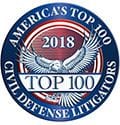A number of medication errors in New York occur because of drug names that sound close enough to one another to be easily confused. For this reason, according to the American Society of Hematology, drug manufacturers take great care to avoid giving new medications names that are too similar to existing medications in spelling or phonetics. If a proposed name is too close to that of an existing pharmaceutical, the regulators may require the manufacturers to change it.
However, this is only one of a number of rules that govern what name a drug manufacturer can give a new medication. National nomenclature committees under the onus of the World Health Organization and the American Medical Association have the final say in the matter, and those organizations place significant emphasis upon the clarity of medication names. For this reason, they may adjust the spelling so it is easier to spell and pronounce. Thus, because it is easier to figure out how to pronounce “alfa” than “alpha,” a pharmaceutical with the Greek root word in its name may see its spelling revised.
Names of medications do not always indicate what they do. However, it is important that the name of a pharmaceutical not give a false impression of what it does. For example, if you were developing a new drug, you would not be able to call it “panacea,” or a derivation thereof, unless it literally cured all diseases. To avoid confusion, it is also important to avoid giving a drug a name that translates to something unrelated in a foreign language.
Because of the many complicated considerations involved in naming new medications, the manufacturers often do not provide new names themselves. Instead, the outsource the responsibility to a company that specializes in naming and branding, or else they refer the product to a naming committee.
The information in this article is not intended as legal advice but provided for educational purposes only.






